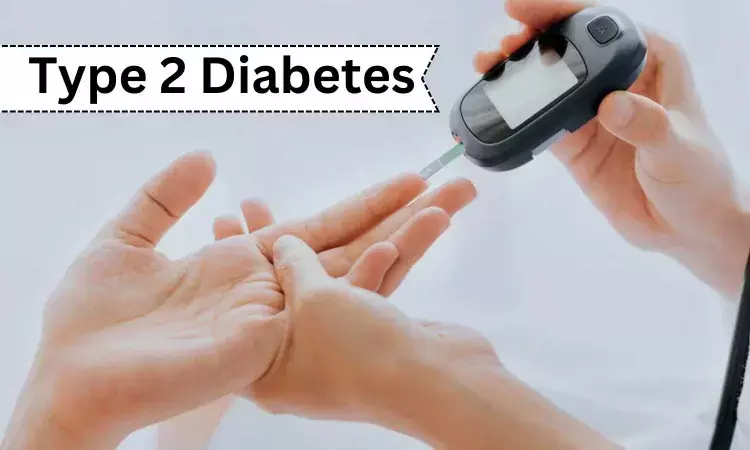- Home
- Medical news & Guidelines
- Anesthesiology
- Cardiology and CTVS
- Critical Care
- Dentistry
- Dermatology
- Diabetes and Endocrinology
- ENT
- Gastroenterology
- Medicine
- Nephrology
- Neurology
- Obstretics-Gynaecology
- Oncology
- Ophthalmology
- Orthopaedics
- Pediatrics-Neonatology
- Psychiatry
- Pulmonology
- Radiology
- Surgery
- Urology
- Laboratory Medicine
- Diet
- Nursing
- Paramedical
- Physiotherapy
- Health news
- Fact Check
- Bone Health Fact Check
- Brain Health Fact Check
- Cancer Related Fact Check
- Child Care Fact Check
- Dental and oral health fact check
- Diabetes and metabolic health fact check
- Diet and Nutrition Fact Check
- Eye and ENT Care Fact Check
- Fitness fact check
- Gut health fact check
- Heart health fact check
- Kidney health fact check
- Medical education fact check
- Men's health fact check
- Respiratory fact check
- Skin and hair care fact check
- Vaccine and Immunization fact check
- Women's health fact check
- AYUSH
- State News
- Andaman and Nicobar Islands
- Andhra Pradesh
- Arunachal Pradesh
- Assam
- Bihar
- Chandigarh
- Chattisgarh
- Dadra and Nagar Haveli
- Daman and Diu
- Delhi
- Goa
- Gujarat
- Haryana
- Himachal Pradesh
- Jammu & Kashmir
- Jharkhand
- Karnataka
- Kerala
- Ladakh
- Lakshadweep
- Madhya Pradesh
- Maharashtra
- Manipur
- Meghalaya
- Mizoram
- Nagaland
- Odisha
- Puducherry
- Punjab
- Rajasthan
- Sikkim
- Tamil Nadu
- Telangana
- Tripura
- Uttar Pradesh
- Uttrakhand
- West Bengal
- Medical Education
- Industry
Single one-hour endoscopic procedure could potentially control type 2 diabetes

Researchers have developed a procedure that uses controlled electrical pulses to induce changes to the lining of the first part of the small intestine could allow patients with Type 2 diabetes to stop taking insulin and still maintain glycemic control.
The findings of the preliminary first-in-human study that will be presented at Digestive Disease Week® (DDW) 2023.
“The potential for controlling diabetes with a single endoscopic treatment is spectacular,” said Celine Busch, the study’s lead researcher and PhD candidate in gastroenterology at Amsterdam University Medical Center. “One of the biggest advantages of this treatment is that a single outpatient endoscopic procedure provides glycemic control, a potential improvement over drug treatment, which depends on patients taking their medication day in, day out.”
More than 37 million Americans have diabetes, and more than 90% of them have Type 2 diabetes. Type 2 diabetes most often develops in people over age 45, but more and more children, teens and young adults are also developing it. Glucose lowering medication can be expensive, and the injection of insulin has several side effects, including the risk of low blood sugar and weight gain.
In this early-stage study, 14 patients underwent an endoscopic procedure in which alternating electrical pulses were delivered to the duodenum, a portion of the lining of the small intestine just below the stomach. After the hour-long procedure, patients were discharged on the same day and then put on a calorie-controlled liquid diet for two weeks. Patients then began taking semaglutide, a diabetes medicine, titrating up to 1 mg a week.
Semaglutide on its own sometimes allows patients with Type 2 diabetes to quit taking insulin, but only in about 20% of cases, Busch said. In this study, 12 of 14 patients, or 86%, maintained good glycemic control without insulin for a year, suggesting the improvement is related to the procedure and not just to the semaglutide. Authors are beginning work on a double-blind randomized controlled trial to test these results.
“While drug therapy is ‘disease-controlling,’ it only reduces high blood sugar as long as the patient continues taking the medication,” said Jacques Bergman, M.D., PhD, principal investigator on the study and professor of gastrointestinal endoscopy at Amsterdam University Medical Center. “This one procedure is ‘disease-modifying’ in that it reverses the body’s resistance to its own insulin, the root cause of the Type-2 diabetes.”
Previous researchers explored the impact of ablation, using heat to modify the lining of the small intestine, after observing that patients who underwent gastric bypass experienced improved insulin control immediately after the surgery, even before any weight loss could occur, indicating that bypassing this portion of the small intestine plays a role in the glycemic control in Type 2 diabetes.
Researchers hypothesized that chronic exposure to a high-sugar, high caloric diet results in a yet unknown change to this portion of the small intestine, making the body resistant to its own insulin, Busch said. Researchers believe rejuvenating the tissue in this part of the intestine improves the body’s ability to respond to its own insulin, particularly in patients with Type 2 diabetes whose bodies still produce some insulin.
Dr Kamal Kant Kohli-MBBS, DTCD- a chest specialist with more than 30 years of practice and a flair for writing clinical articles, Dr Kamal Kant Kohli joined Medical Dialogues as a Chief Editor of Medical News. Besides writing articles, as an editor, he proofreads and verifies all the medical content published on Medical Dialogues including those coming from journals, studies,medical conferences,guidelines etc. Email: drkohli@medicaldialogues.in. Contact no. 011-43720751


